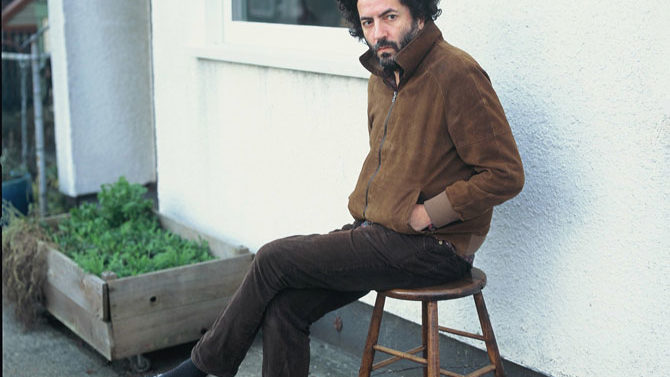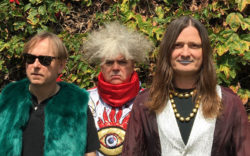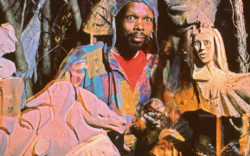It’s an enduring image: a songwriter alone onstage with a guitar. It evokes a kind of Platonic ideal, an opportunity to get at the pure root of a song, stripped of all accompaniment. At his 1966 concert in Manchester, England, Bob Dylan embodied the image with an opening solo set, only to famously tear it to shreds with the full-band electric set that followed.
Closer to home, dedicated Neutral Milk Hotel fans will know Jeff Mangum’s Live at Jittery Joe’s, a recording of a 1997 solo show in Athens. Such performances captivate not only because of their intimacy, but also because they seem to provide a glimpse of the essential—song and songwriter in their purest form.
Of course, essentiality is a complicated notion. Witness Dan Bejar of Destroyer. Bejar’s past two records, 2011’s Kaputt and last year’s Poison Season, saw him moving away from the guitar-driven rock aesthetic that characterized most of Destroyer’s catalog. Yet this week Bejar comes to Athens as part of a fall solo tour—just him and his guitar. What the shows offer is less a chance to see Bejar at his most elemental than to catch one aspect of a nuanced figure.
Bejar tells Flagpole about his past few records and his reasons for turning away from the guitar at the start of the decade. “I found myself… just by muscle memory going to the same chords and same chord structures, and not being technically advanced enough to really force myself out of any of that, so I figured the easiest thing to do was just to throw down that particular instrument and not touch it.”
Bejar looked to other instruments for inspiration. “In the case of Kaputt, I was thinking of trying to keep chord structures as simple and even ambient as possible,” he explains. He speaks of “holding down note clusters… on MIDI synthesizers.” Prior to Poison Season, Bejar recalls turning to the piano to try and capture the feel of songs in the Great American Songbook. “There’s something about those that sound written on a piano to me,” he says.
In the past few months, Bejar has started writing songs on the guitar again, saying, “They sound different to me than the songs I’ve written in the last few years.” The fall tour will be a first for him, as he tries out new songs in front of audiences before recording them or playing them with a band.
“I have heard of people going out and testing songs in front of audiences,” he says. “I can’t imagine exactly how that works, but it seems like maybe a cool thing to do. I kinda figure some time at 3 a.m. by myself in a hotel in Fargo or Spokane or Oxford, MS might gather me some valuable insight.”
The plan is to go into the studio immediately after the tour ends, but there’s no telling if the songs that end up on tape will be recognizable to the audiences that heard them first. “I never know what happens to a song until a band gets a hold of it,” Bejar says, “or until we go into the studio and mangle it, you know?”
Lately, Bejar has shown even more willingness to let a song change shape. Poison Season, for example, features multiple versions of the song “Times Square.” Audiences who see Bejar this fall will have the opportunity to witness an early stage in that process—not the pure representation of an ideal, but its dynamic rejection. Says Bejar, “There’s nothing I like more than to totally throw out an idea I thought was etched in stone.”
Like what you just read? Support Flagpole by making a donation today. Every dollar you give helps fund our ongoing mission to provide Athens with quality, independent journalism.










